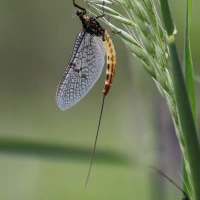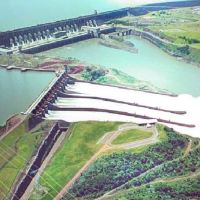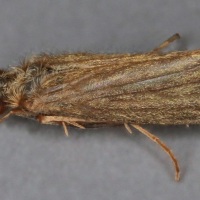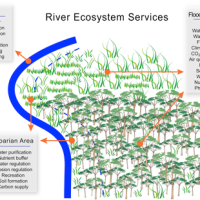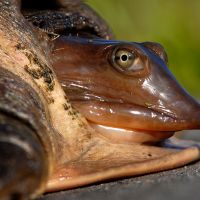New journal special issue focuses on river conservation under multiple stresses

A Mediterranean river: the Fango Valley in Corsica. Image: Ole Reidar Johansen (Flickr | Creative Commons)
Rivers are often receptacles for substances used and emitted by humans living across their watersheds. Fertilisers, pesticides, pharmaceuticals and new substances such as microplastics and nanomaterials may be carried through drains and outflow pipes, along roads, pavements and fields, and through rock and soil to reach a river.
Here, pollutants can impair the health and functioning of the river ecosystem in a number of ways. Such effects are complex, and may occur in interaction with other stressors on the river ecosystem such as alterations of water flow and temperature, habitat loss, climate change and invasive species (see the recent MARS video on the subject).
The interactions and effects of such multiple stressor ‘cocktails’ on river ecosystems are still only partially understood by freshwater scientists. In this context, a new issue of the journal Science of the Total Environment features 44 scientific papers on multiple stressor effects on rivers, particularly focused on Mediterranean river basins and water scarcity.
The special issue, titled “River Conservation under Multiple stressors: Integration of ecological status, pollution and hydrological variability” is edited by Marta Schuhmacher from the Universitat Rovira i Virgili and Alicia Navarro-Ortega, Laia Sabater and Damià Barceló from the Spanish Council for Scientific Research Institute of Environmental Assessment and Water Research.
Between 2009-14, the editorial team were members of the Spanish government-funded SCARCE project, which assessed and predicted the effects of global environmental change on water quantity and quality in Iberian rivers.
The final SCARCE conference, held in October 2014 in Tarragona, was attended by many partners of the European Union funded GLOBAQUA project. Both projects have common interests in considering water scarcity as the main stressor in river systems. The Tarragona conference integrated many of the findings and data from the SCARCE project with ongoing GLOBAQUA activities, which in turn have been translated into journal articles in the new special issue.
There is a rich variety of articles in the issue, covering numerous different multiple stressors scenarios in ecosystems across the world, and assessing strategies for their experimental study and management. Earlier in the year, we covered a study published in the special issue by MARS scientists led by Peeter Nõges on biotic and abiotic responses to multiple stress.
You can read the special issue of Science of the Total Environment online here





